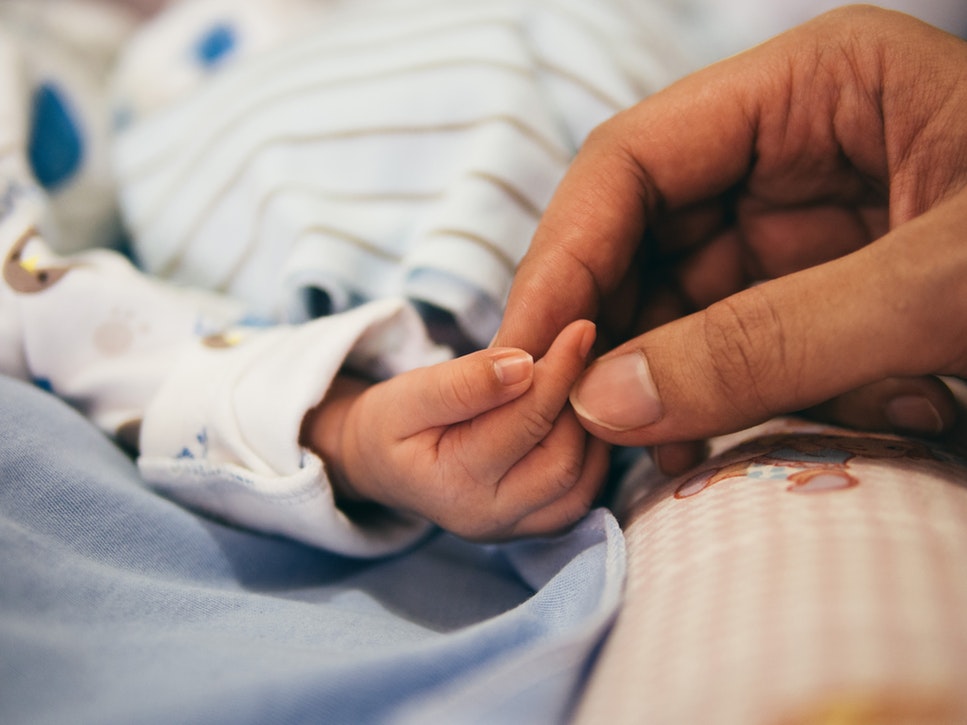Our Father

I really miss my father, who passed away two years ago. He was a missionary who had a heart for all people. The first two words of the Lord's Prayer—"Our Father" (Matthew 6:9)—remind me of our Heavenly Father and also of my wonderful earthly father. In fact, in reading the Lord's Prayer lately, I began to contemplate just what that brief address, "Our Father," means in different realms of our lives.
Global
All of us who know God as our Heavenly Father are brothers and sisters in God's family. This hit me in an unusual way at a district assembly in Guyana last year. As I stood with District Superintendent Alfonso Porter, who has no biological relationship to me, I proudly said, "Your Father is my Father!"
He and I and all others who call God "Father" have equal access to divine grace. Being sin-orphans, we were grace-adopted into this wonderful Christian family. Regardless of our parentage, history, or national identity, we are one family. At the foot of the cross there is no preferred nationality. People draw national boundaries that divide, but in Christ we are one.
Multicultural
The gospel came to each of us wrapped in the swaddling clothes of our own culture. We did not become Jewish to embrace the Messiah from Nazareth. The gospel took on our cultural trappings of language, food, customs, traditions, and shared values. Historically, some missionaries mistakenly insisted that converts change cultures to embrace faith in Jesus. But the good news is that God speaks our language and resonates with our culture! He is the Father of children in many cultures.
Family
Sharing a Father makes us sisters and brothers. We reflect the innate God-given dignity of human life when we love our esteemed siblings. As we love our brothers and sisters, we compassionately respond to their pain and needs, and they respond to ours. Compassion is not an optional additive for the church family—it is at the very heart of what it means to be a Christian.
Compassion is at the center of every relationship.
Children
To address "Our Father" implies that we are children. Our Lord said we must become as children to enter the Kingdom. Children do not judge others by nationality, color, education, or wealth. Children simply want to play, dance with glee, and feel the safety of the loving arms of the one who catches them when they jump! As children, we are to leave our stress and struggles in our Father's hands and enjoy the life and siblings He has given us.
We Honor our Global Siblings
The Church of the Nazarene was born in revival fires that spread across the U.S. at the turn of the 20th century. The roots of this movement go back to John Wesley in England and to some of the earliest church fathers and mothers. Today more than half of our global family lives outside the U.S. The general assembly and General Board reflect this international diversity quite well. Now leaders on the general administrative level are seeking ways to add multicultural diversity at every level of the church in order to honor, serve, and reflect the rich mosaic of global Nazarenes.
We Defend our Siblings
If we see one of our younger brothers or sisters being abused, we instinctively defend them. Given the power dynamics of our world, and as children of one Father, we shield those who cannot defend themselves. This might include the unborn, children, the underprivileged, immigrants, the handicapped, and the aged, to name a few.
To pray together, "Our Father," is a call to wise justice in the kingdom of God. "Our Father" means that we are a global, multicultural family of children who honor and defend each other. Whoever becomes simple and elemental again, like this child, will rank high in God's kingdom. What's more, when you receive the childlike on my account, it's the same as receiving me. (Matthew 18:4-5 TM)
Jerry D. Porter is a general superintendent in the Church of the Nazarene.
Holiness Today, September/October 2006
Please note: This article was originally published in 2006. All facts, figures, and titles were accurate to the best of our knowledge at that time but may have since changed.




